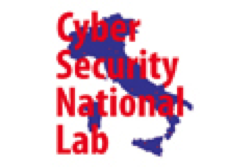Urban Resilience
Resilience is the modern paradigm to cope with contingencies. Any Critical Infrastructure security management is, nowadays, mostly devoted to improve resilience and optimize resources allocation, in order to grant the highest availability of service. Beyond those autonomous efforts, human communities need to improve their global resilience by coordinating their efforts. Large areas such as cities, regions, states or even continent-wide areas, very often share their infrastructures (and natural resources), which are strongly interdependent. This situation implies different levels of governance to improve the effective resilience of the resulting system of systems. In this context, urban areas represent a kind of elective target since most of the people leave in the cities, where also managers and authorities lay.
Metropolitan areas provide the highest level of services to people. Moreover, in the perspective of smart society (smart city), the services provided are increasingly more sophisticated and automated. To grant uninterrupted high levels of the quality of life is a very complex task, which requires specific efforts from operators, authorities, police forces, rescue teams and even citizens' cooperation and training.
Improvements in managing of CI's in urban areas - with a special focus on security issues - will be presented in this session. Even more importantly, all activities devoted to improve operators collaboration, urban service planning, early warning and security of the smart city are appreciated.


















